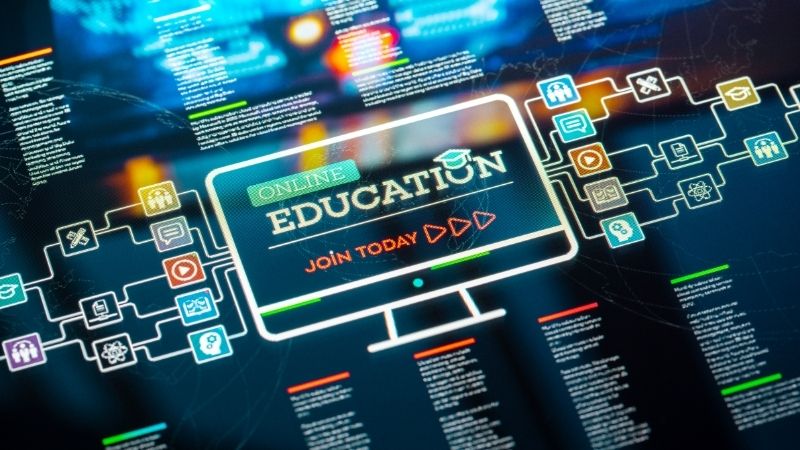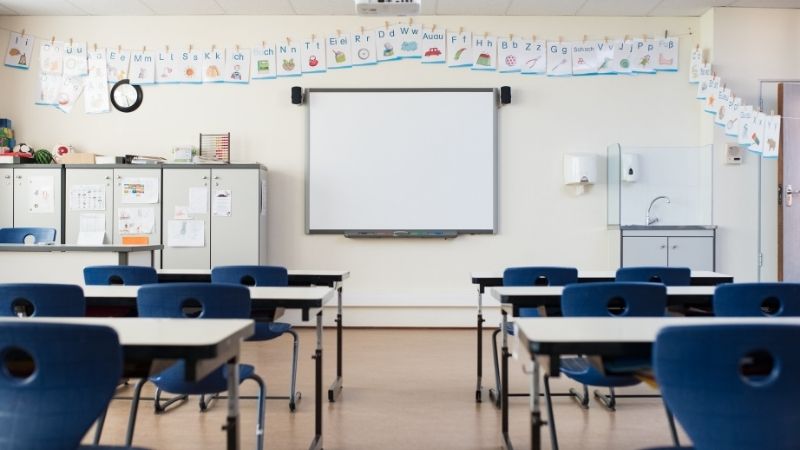
What factors contribute to the importance of special education evaluations?
How do different aspects such as types of assessments, diagnosis techniques, and testing methods play a role in this process?
Furthermore, what is the significance of comprehensive reports and apt recommendations in special education evaluations?
In order to address these questions and provide a thorough understanding, this article explores the various dimensions of special education evaluations.
By examining the importance of these evaluations, we can gain valuable insights into their impact on educational outcomes for students with special needs.
Key Takeaways
- Special education evaluations involve various types of assessments and diagnosis techniques, including cognitive assessments, academic assessments, social-emotional assessments, adaptive behavior assessments, observations, standardized tests, interviews, and questionnaires.
- Challenges in special education evaluations include limited normative data, cultural and linguistic biases, and individual differences.
- Comprehensive reports in special education evaluations are significant as they provide a detailed summary of assessment findings, serve as a record of the evaluation process, offer valuable insights into a student's educational needs, facilitate communication, and guide decision-making.
- Apt recommendations in special education evaluations are necessary for success in school, ensure individualized programming for students with disabilities, and facilitate communication and collaboration among stakeholders.
Types of Assessments in Special Education Evaluations
Various types of assessments are utilized in special education evaluations to gather information about a student's cognitive abilities, academic skills, social-emotional functioning, and adaptive behavior. These assessment types play a crucial role in ensuring an effective diagnosis of the student's needs and determining appropriate interventions.
Cognitive assessments such as intelligence tests provide valuable insight into a student's intellectual capabilities and potential for learning. Academic assessments focus on evaluating a student's proficiency in specific subjects or areas, helping educators identify areas of strength and weakness. Social-emotional assessments assess a student's emotional well-being, social skills, and behavior patterns to determine if additional support is required. Lastly, adaptive behavior assessments evaluate a student's ability to function independently in various settings.

By utilizing these assessment types, educators can gather comprehensive data that informs effective diagnosis techniques for special education evaluations.
Transition: Now that we have discussed the different types of assessments used in special education evaluations, let us turn our attention to the diagnosis techniques employed in this process.
Diagnosis Techniques Used in Special Education Evaluations
Diagnosis techniques employed in special education evaluations encompass a range of methods to assess and identify students' specific needs. These techniques are crucial for effective identification and intervention planning.
Here are three key diagnosis techniques commonly used in special education evaluations:
Observations: This technique involves systematically observing the student's behavior, interactions, and academic performance in various settings. It provides valuable insights into their strengths, weaknesses, and areas requiring support.
Standardized Tests: These assessments use established norms and scoring procedures to measure the student's cognitive abilities, academic skills, language development, social-emotional functioning, and adaptive behaviors. They provide quantitative data that aids in determining appropriate interventions.
Interviews and Questionnaires: Gathering information from parents, teachers, or other professionals through interviews or questionnaires helps elicit comprehensive information about the student's background, developmental history, challenges faced at home or school, and previous interventions tried.

Testing Methods for Special Education Evaluations
The validity of testing methods and the reliability of assessment tools are crucial aspects to consider when conducting special education evaluations.
Validity refers to the extent to which a test measures what it is intended to measure, while reliability pertains to the consistency and stability of a test's results.
Ensuring that testing methods are valid and assessment tools are reliable is essential in order to make accurate diagnoses and appropriate recommendations for students with special needs.
Validity of Testing Methods
One aspect to consider when evaluating the validity of testing methods in special education is the extent to which they accurately measure a student's abilities and needs. Validity refers to the degree to which an assessment tool measures what it claims to measure. In special education, ensuring the validity of testing methods is crucial for providing appropriate support and interventions for students.
However, there are challenges in achieving valid assessments in this field due to various factors such as:
Limited normative data: Special education populations often have unique characteristics that may not be adequately represented in normative samples, making it challenging to establish accurate benchmarks.
Cultural and linguistic biases: Testing methods may be influenced by cultural and linguistic biases, leading to inaccurate results for students from diverse backgrounds.

Individual differences: Each student has unique learning styles, strengths, and weaknesses that can impact their performance on tests. It is important for assessment tools to account for these individual differences to ensure accurate measurement of abilities and needs.
Addressing these challenges is essential for developing reliable testing methods that accurately capture the abilities and needs of students receiving special education services.
Reliability of assessment tools is a critical consideration when evaluating the accuracy and consistency of measurement in special education. In order to make informed decisions about students' abilities, it is essential that assessment instruments are reliable and yield consistent results over time. Reliability refers to the extent to which an assessment tool consistently measures what it intends to measure. In the context of special education evaluations, reliability ensures that assessments provide dependable information about students' strengths, weaknesses, and progress. Reliable assessment tools allow for more accurate identification of students' needs and inform appropriate interventions and support services. By using reliable assessments, educators can ensure that they are making well-informed decisions regarding instructional strategies and individualized programming for students with disabilities.
The significance of comprehensive reports in special education evaluations cannot be overstated. These reports provide a detailed summary of assessment findings, including test scores, observations, and other relevant data. Comprehensive reports not only serve as a record of the evaluation process but also offer valuable insights into a student's educational needs. They help guide decision-making by providing clear recommendations for instruction, accommodations, and supports necessary for success in school. Additionally, these reports facilitate communication between parents, teachers, and other professionals involved in supporting the student's educational journey.
Transition: Having discussed the importance of reliable assessment tools in special education evaluations, we will now explore the significance of comprehensive reports in further detail.
The Significance of Comprehensive Reports in Special Education Evaluations
A comprehensive report plays a crucial role in special education evaluations as it provides a thorough analysis of the student's strengths, weaknesses, and specific educational needs. These reports are essential for informing appropriate interventions and ensuring that students receive the support they require to succeed academically.
Here are three key reasons why comprehensive reports are significant:

Individualized Approach: Comprehensive reports allow educators to develop individualized educational plans tailored to each student's unique needs, ensuring that interventions are targeted and effective.
Collaborative Efforts: A well-written comprehensive report facilitates collaboration between educators, parents, and other professionals involved in the student's education. This collaboration promotes better understanding of the student's challenges and helps create a cohesive plan for intervention.
Legal Compliance: Comprehensive reports serve as legal documentation of evaluations conducted in special education settings. They provide evidence-based information that supports decisions regarding eligibility for special education services and accommodations.
Apt Recommendations in Special Education Evaluations
Effective recommendations in special education evaluations are crucial for guiding appropriate interventions and ensuring that students receive the necessary support to meet their educational needs.
Informed decisions regarding personalized interventions can only be made when comprehensive evaluations provide accurate and detailed information about a student's strengths, weaknesses, and specific areas of need.
These recommendations are based on a thorough understanding of the individual student's abilities and challenges, as well as their unique learning style and preferences.
By considering all relevant factors, such as assessment results, diagnostic techniques, and testing methods, evaluators can provide tailored recommendations that address the specific needs of each student.

These recommendations serve as a roadmap for educators and other professionals involved in the student's education journey.
As we explore different aspects of special education evaluations in subsequent sections, it becomes evident how apt recommendations play an integral role in supporting students with disabilities.
Different Aspects of Special Education Evaluations
Various components of the process involved in special education evaluations are essential for gathering accurate and comprehensive information about a student's academic abilities and areas of need. These evaluations typically involve the use of different assessment types and diagnosis techniques, which allow professionals to gain a holistic understanding of the student's strengths, weaknesses, and educational requirements.
Standardized tests: These assessments provide objective measures of a student's performance compared to their peers, allowing for standardized comparisons across individuals.
Observations: Direct observations of students' behavior and interactions can provide valuable insights into their social communication skills, attention span, and overall functioning.
Interviews: Collaborating with parents or guardians through interviews helps gather information on the student's developmental history, medical conditions, and any concerns that may impact their learning experience.
By utilizing these assessment types and diagnosis techniques in special education evaluations, professionals can ensure that they have a comprehensive understanding of each individual's unique needs and tailor appropriate interventions accordingly.

Transition Sentence: Having explored the different aspects involved in special education evaluations, it is crucial now to delve into why these evaluations hold significant importance in supporting students' educational journey effectively.
Exploring the Importance of Special Education Evaluations
This discussion will focus on the importance of special education evaluations. Specifically, it will examine the variations in assessment types, the effectiveness of diagnosis techniques for identifying students' needs, and how comprehensive reports can inform appropriate interventions.
Understanding the different assessment types used in special education evaluations is crucial for accurately identifying and addressing students' unique learning needs.
Additionally, effective diagnosis techniques play a vital role in determining the most appropriate interventions to support students' academic and developmental progress.
Assessment Types: Understanding Variations
Assessment types in special education evaluations encompass a range of variations that include norm-referenced tests, criterion-referenced assessments, and curriculum-based measurements. These assessment types serve as valuable tools in understanding variations among students and ensuring effective identification of their needs.
Norm-referenced tests provide a standardized measure of an individual's performance compared to a representative sample of the population. They offer objective information about a student's abilities and can help identify areas where additional support may be required.
Criterion-referenced assessments focus on determining whether students have achieved specific learning objectives or mastery criteria. This type of assessment allows educators to tailor instruction according to individual needs and track progress towards specific goals.

Curriculum-based measurements involve the frequent monitoring of academic skills, providing ongoing data that can inform instructional decisions. These assessments are particularly useful in evaluating progress over time and identifying areas where targeted interventions may be necessary.
Understanding these assessment types enables educators to gather comprehensive information about students' strengths and weaknesses, leading to more accurate diagnoses and appropriate recommendations for specialized interventions.
Diagnosis Techniques: Effective Identification
Effective identification of students' needs in special education evaluations relies on employing accurate diagnosis techniques that provide comprehensive information about students' strengths and weaknesses. These diagnosis techniques play a crucial role in determining appropriate interventions for students with special needs.
One commonly used technique is the psychoeducational assessment, which involves evaluating cognitive abilities, academic skills, and social-emotional functioning.
Another technique is behavioral observation, where the student's behavior is systematically observed and recorded to identify specific areas of concern.
Additionally, speech and language assessments can help identify communication difficulties that may require targeted interventions.
Occupational therapy assessments focus on assessing fine motor skills, sensory processing, and functional abilities to determine the need for therapeutic interventions.

Comprehensive reports in special education evaluations provide valuable information for developing appropriate interventions and strategies to address students' unique needs. These reports serve as a roadmap, guiding educators and specialists in creating individualized plans that are tailored to the specific requirements of each student.
Key elements of these comprehensive reports include:
Detailed Assessment Results: The report presents a comprehensive summary of the assessments conducted during the evaluation process. This allows educators and specialists to have a clear understanding of the student's strengths, weaknesses, and areas requiring intervention.
Specific Recommendations: The report includes recommendations for appropriate interventions based on the assessment results. These recommendations outline targeted strategies, accommodations, modifications, or therapies that can support the student's learning and development.
Progress Monitoring Strategies: Comprehensive reports also suggest methods for monitoring progress over time. This ensures that interventions are effective and beneficial for the student's growth while providing opportunities for adjustments if needed.
Frequently Asked Questions
How Long Does a Special Education Evaluation Typically Take?
The timeline for a special education evaluation varies depending on several factors, such as the complexity of the student's needs and the availability of assessment resources. The involvement of parents in the evaluation process is crucial to ensure a comprehensive assessment.
What Role Do Parents or Guardians Play in the Special Education Evaluation Process?
The role of parental involvement in the special education evaluation process is crucial, as it fosters collaboration between parents and professionals. Parents contribute valuable insights about their child's abilities and needs, ensuring comprehensive assessments, accurate diagnoses, appropriate testing methods, and relevant recommendations are provided.

Are There Any Specific Legal Requirements for Special Education Evaluations?
Legal requirements for special education evaluations vary by jurisdiction, but generally include provisions for parental involvement. Parents may have the right to provide input, access records, and participate in decision-making processes regarding their child's evaluation and subsequent special education services.
A formal evaluation is typically required for a child to receive special education services. However, there are alternative options available, such as Response to Intervention (RTI) or 504 plans, which have their own pros and cons.
Are There Any Potential Drawbacks or Limitations to Special Education Evaluations?
Potential drawbacks and limitations of special education evaluations include challenges in accurately assessing certain disabilities, ethical concerns regarding informed consent and confidentiality, and the validity and reliability of assessment tools. Alternative approaches may be needed to address these issues.
 Careers in EducationElementary EducationHigh School EducationEducational TechnologyTeaching StrategiesSpecial EducationPrivacy PolicyTerms And Conditions
Careers in EducationElementary EducationHigh School EducationEducational TechnologyTeaching StrategiesSpecial EducationPrivacy PolicyTerms And Conditions
